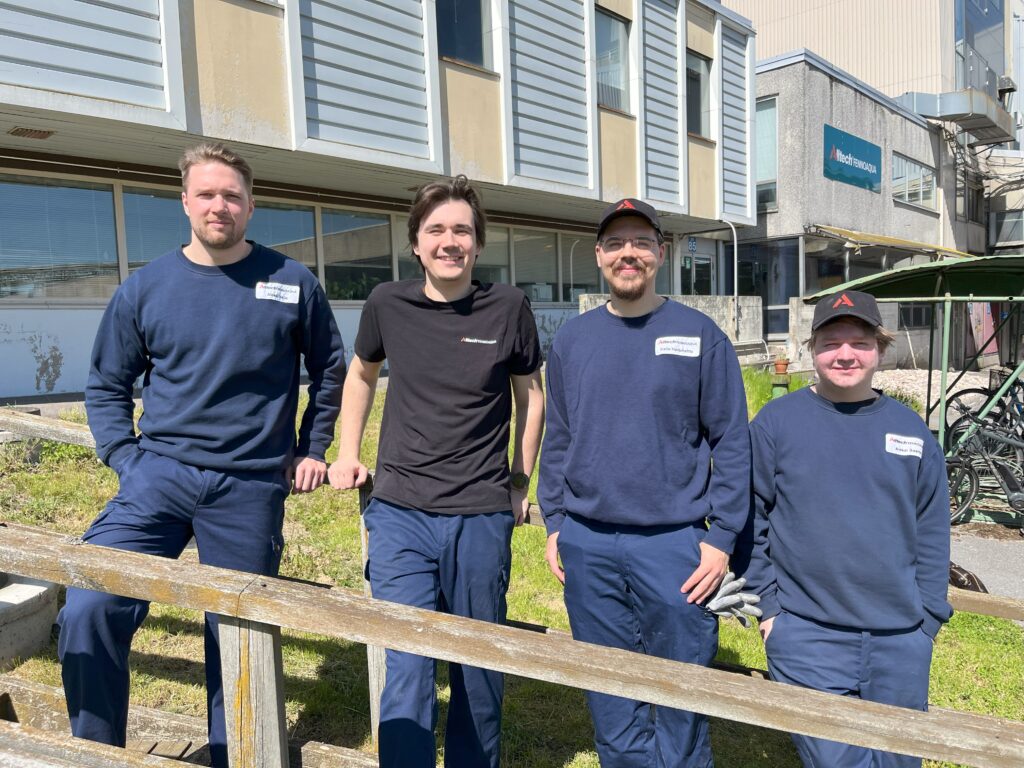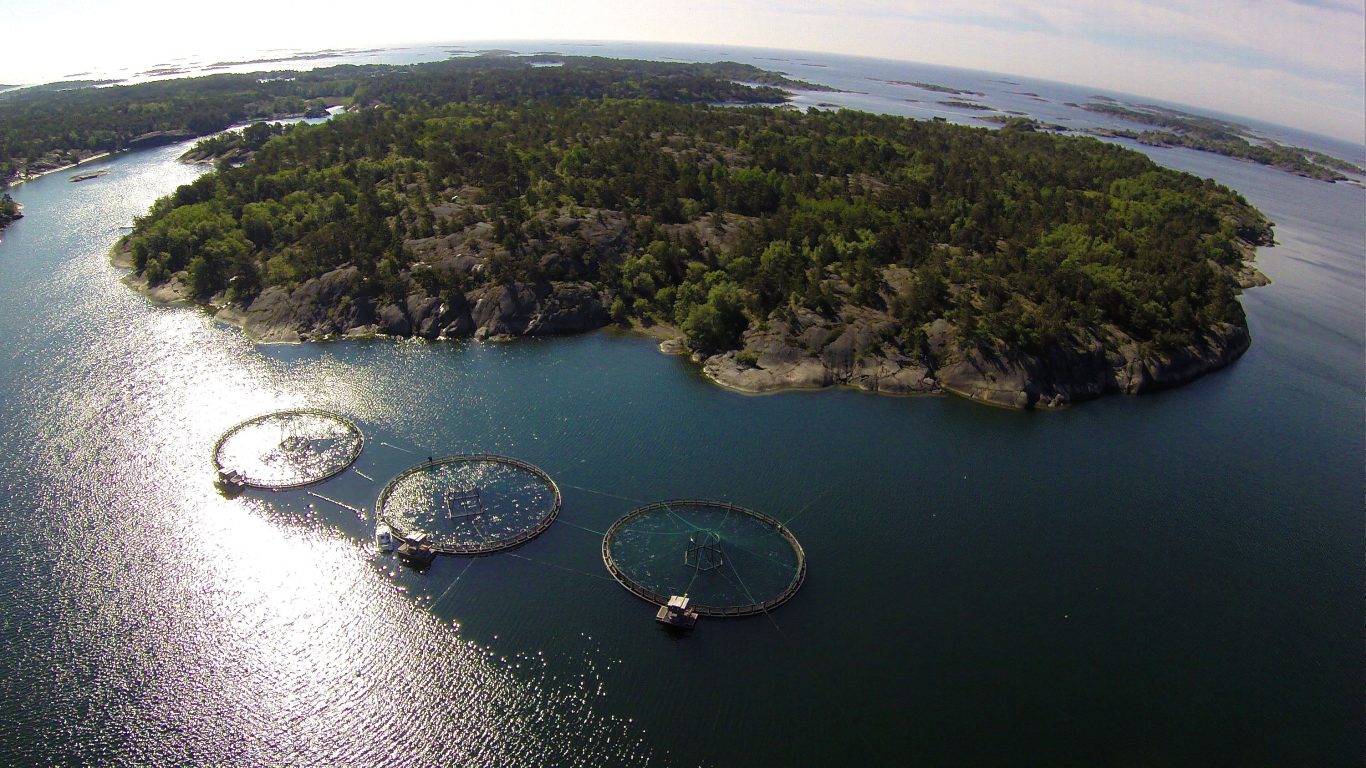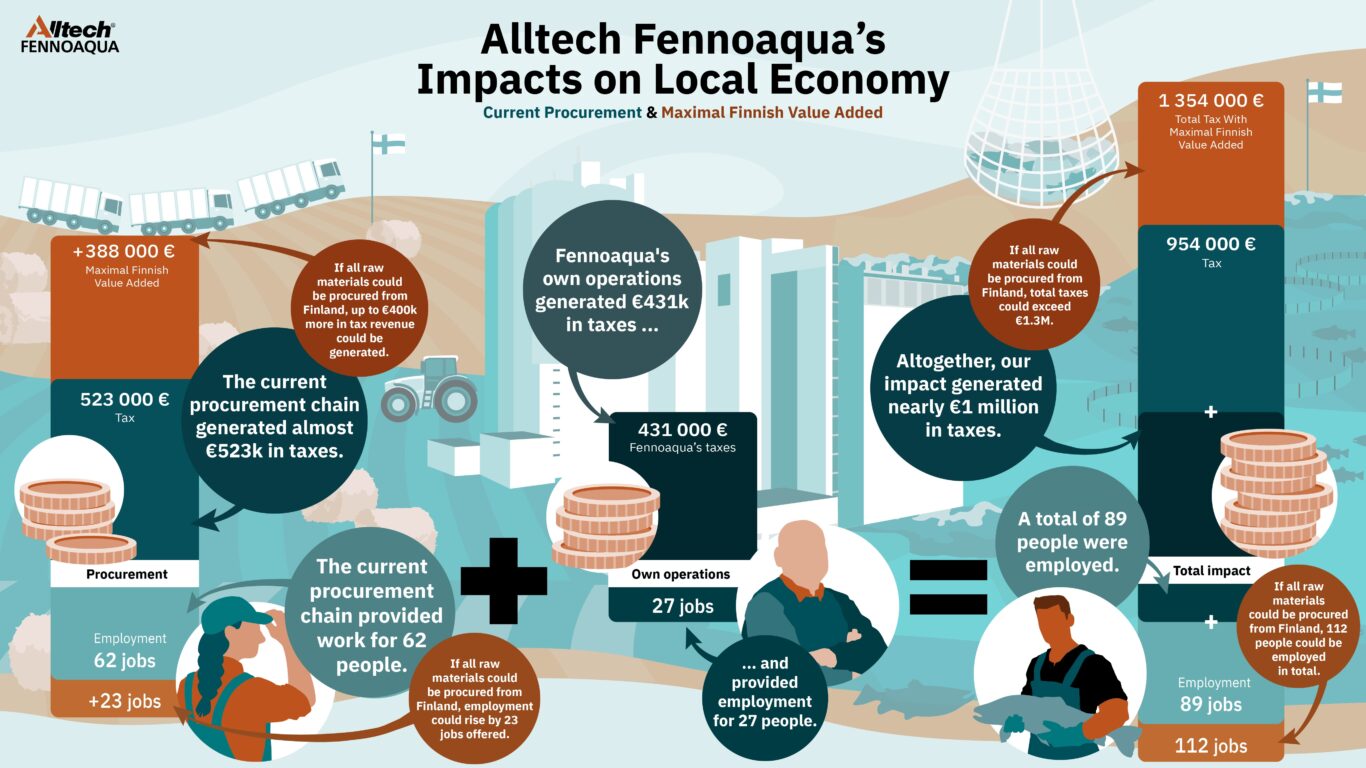Fennoaqua is part of the local community and environment
Fennoaqua takes responsibility for the environment, economy, and community in its local area. For us, our local area is Raisio, Finland and the Baltic Sea. We are aware that we operate as part of the environment and want to take care of it.
Below, we have compiled a list of issues that are important to us and that we focus on in our local community.
We reduce our environmental impact through feed expertise
We have been investing in the environmental impact of feed since the mid-1990s, so Fennoaqua has a lot of unique feed expertise. For example, we are pioneers in feed that follows the principles of the circular economy.
Our low-phosphorus Baltic Blend® feed recycles nutrients and actively promotes phosphorus removal from the Baltic Sea. It promotes ecologically sustainable fishing practices and increases the use of underutilised herring and sprat stocks. The purified fish meal and oil used in these feeds are sourced primarily from fish caught in the Baltic Sea by fishermen holding Marine Stewardship Council (MSC) certification for responsible fishing practices.
We hold the international GlobalG.A.P. certificate, which ensures that our feed is produced sustainably, taking into account the well-being of employees, the environment, and animals. Additionally, we are currently pursuing the Aquaculture Stewardship Council (ASC) standard for our feed, which encompasses several criteria related to environmental and social responsibility.
Our feed production supports Finland’s security of supply
Alltech Fennoaqua is the only Finnish fish feed manufacturer and an essential link in ensuring Finland’s security of supply. Domestic fish farming is a crucial component of food security and self-sufficiency.
Local feed production near Finnish fish farmers ensures that fish farming has favourable conditions in all situations. Fennoaqua’s production capacity is also sufficient to meet growing demand, and if necessary, we can meet the entire fish feed demand in Finland.
Our operations have a significant impact on the regional economy
For our 2024 ESG report, we examined the regional economic impact of our operations. Together with an external expert, we specifically reviewed how our raw material procurement and indirect purchases affect local employment, wage tax, and corporate tax.
Our factory and operations have a significant positive impact on the regional economy.
Approximately 60% of Fennoaqua’s total procurement budget is directed towards Finnish goods and service suppliers, generating 62 person-years of employment annually in our upstream operations (twice as many as our company’s employment), over €230,000 in corporate taxes, and over €290,000 in wage taxes.
If all our raw materials could be procured from Finland, our process would generate an annual increase of 37% in employment, 60% in corporate taxes, and 90% in wage taxes in our upstream operations.
We actively cooperate with the authorities
We regularly cooperate with various authorities and the city of Raisio. Our operations are subject to a licence, and the validity of the licence requires continuous monitoring of our operations, including regular measurements and reporting on matters such as wastewater.
One issue that has occasionally been raised in the local community is the odour caused by our operations. Our goal is to become a completely odour-free factory, and we have a step-by-step plan approved by the authorities to achieve this. We have already implemented the first phase of the plan, and the primary source of odour was neutralised by upgrading the factory’s odour removal system. This year, we will further enhance our odour control by installing additional process equipment to the odour removal system. If odour nuisances occur, the authorities will notify us, and we will work with them to determine whether anything unusual happened in production during that period.
Through our monitoring, maintenance plans and other plans, we aim to identify any deficiencies and deviations ourselves before the people in the surrounding area notices them. For example, our factory has several filters to protect against dust and other factors. We replace the filters at regular intervals to ensure that they are working correctly.
We collaborate with educational institutions
We collaborate with both the University of Turku and Turku University of Applied Sciences. Our cooperation with the university focuses on product development. Our goal is to be an organisation that educational institutions want to cooperate with. For example, we are happy to help our seasonal workers, who are often students, find topics for their thesis that also advance our development projects.

This year, we have seven seasonal workers in production and two in the office from April to September. We recruit seasonal workers annually through recruitment agencies and by targeting educational institutions, such as the Turku University of Applied Sciences.
Seasonal workers are a valued resource for us, as our operations are highly seasonal due to the nature of our industry. We employ 27 people year-round.

